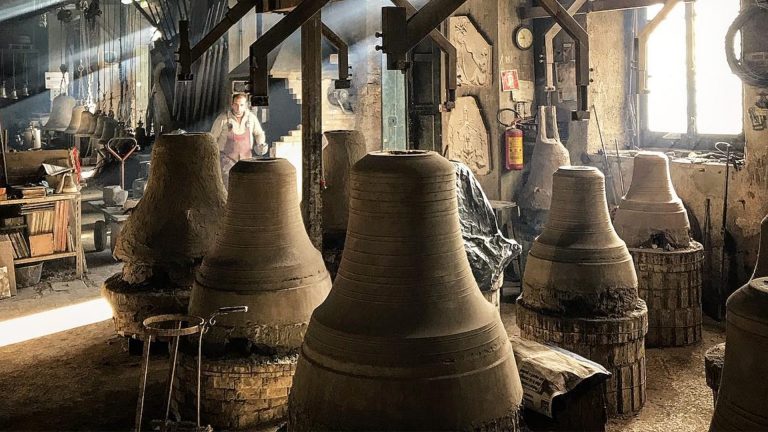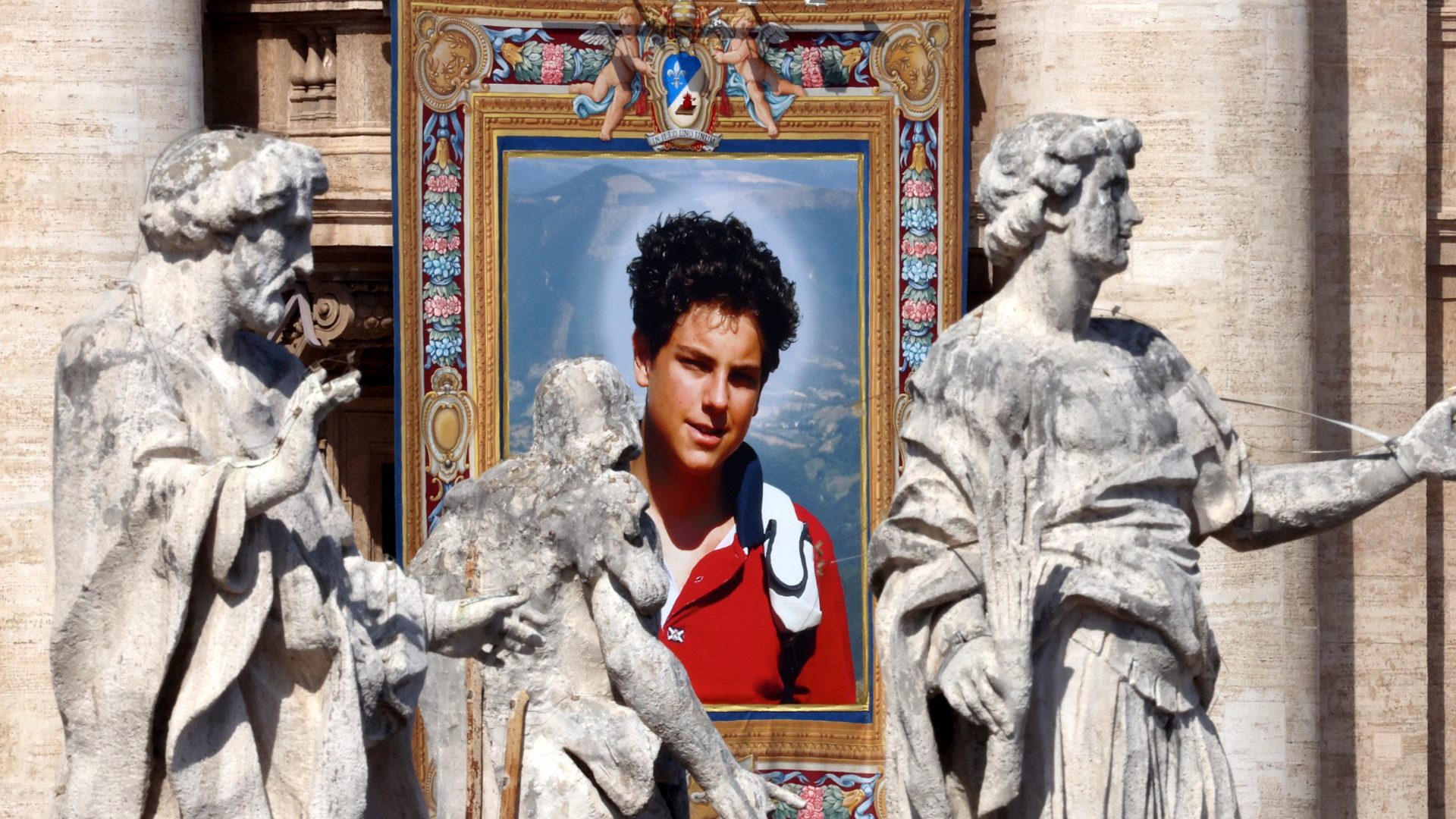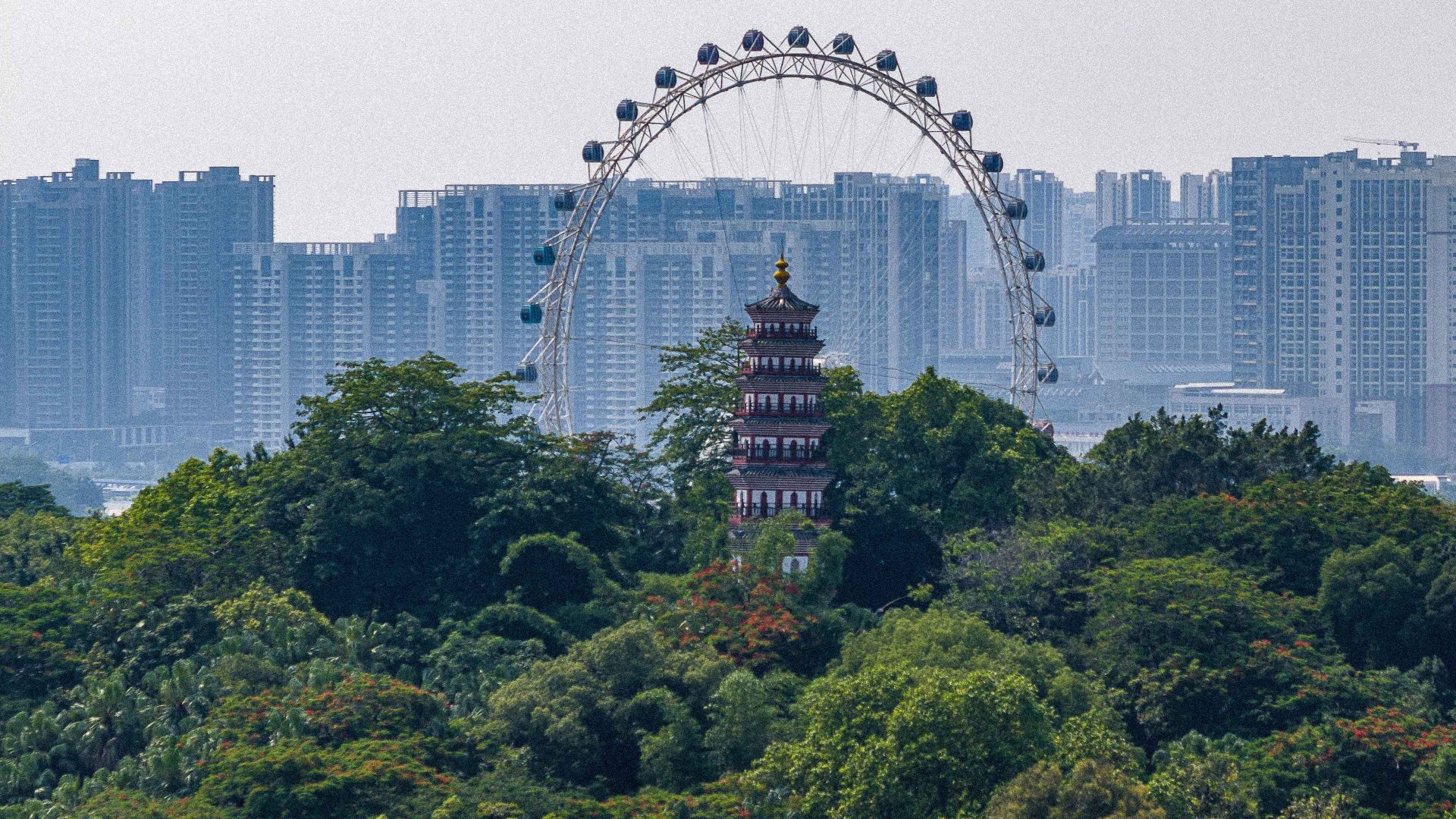Shortly before St Peter’s Square was set to open, the queue to enter the piazza for the history-making canonisation of Carlo Acutis and Pier Giorgio Frassati snaked its way towards Piazza del Risorgimento.
It was a sea of parish groups and pilgrims, often identified by their hats, sometimes in a cobalt blue, and their habit of occasionally breaking into song. Hints of French, Italian and English floated in the air, but the crowd seemed just as much from Italy as it did international.
From the windows of adjacent buildings in Borgo Pio someone had unfurled a Brazilian flag.
Unlike the sombreness and then tentative anticipation that had taken over the city with the death of Pope Francis and the announcement of Pope Leo XIV, this was clearly a day of celebration.
It is Acutis’s canonisation that will mark a first for the Roman Catholic Church – he will become its first millennial saint. Born in 1991 in London to Italian parents but raised in Milan, Acutis has become known as “God’s influencer” for his early use of the internet to spread church teachings. He notably created a website in multiple languages devoted to the miracles of the Eucharist, or the sacrament of Communion in which, by Catholic teaching, bread and wine become the literal body and blood of Christ.
In 2006, after contracting an aggressive form of leukaemia, he died at the age of 15, but a number of priests found his life so inspiring that they started efforts for beatification, resulting in two miracles that were eventually attributed to him.
For young Catholics, Acutis has become a symbol of someone who looks ostensibly just like them and yet succeeded in living a remarkably holy life. Thirty one-year-old Maria Elisa Idotta had come from Reggio Calabria to watch the canonisation mass. Not long before 8am, she was waiting in a group of people to get into the piazza. She was struck by the youth and, in many ways, attainability of both Acutis’s and Frassati’s devout lifestyles. Despite having died in 1925, Frassati, too, died young, only 24.
“These are young people of our times,” she said. “The most important thing is they make us understand that holiness is not a summit that is too high for us to reach, but it is in our daily life.”
Braving the sweltering sun in St Peter’s Square were Laura Michel, 34, and Amélia Vale Ribeiro, 24, who arrived from Paris. Born to Portuguese parents in France, Ribeiro was raised Catholic but had a true awakening after a car accident three years ago. This year, she started selling rosaries she makes by hand.
Suggested Reading


Who makes the Vatican’s bells?
The square was filled with thousands of pilgrims, many wearing shirts emblazoned with Acutis’s red-polo and white-backpack-wearing likeness, the very same image that hung from St Peter’s Basilica. The blazing heat with little cover did not deter pilgrims from congregating in the centre of the piazza. A nun attempted to shield her eyes from the sun, adjusting her bucket hat.
Pope Leo XIV brought the crowd to applause when he offered a joyful greeting to the “many young people who came for this Holy Mass”. Yet the stately affair was otherwise formal and sombre. Bursts from the public also came through when Acutis’s mother, Antonia Salzano, emerged on screen, wearing a black veil and seeming quietly moved. An Irish woman standing next to me noted how rare it must be to have a mother actually watch her son become a saint.
That was how Sunday morning felt: rare, despite the beating sun, the barely dissipating September temperatures, the queues of people trying to get into the piazza hours before the mass had even begun.
An Italian woman who had come from Le Marche, a region north-east of Rome, tapped her phone to share the published Bible readings so we could follow along as they were read. At the end of the mass, as communion began, she clasped a hand to her chest. “Bello,” she said, almost emotional, looking to me for confirmation.
“Molto bello,” she emphasised, and even I felt tears spring to my eyes, moved as well by what I had seen.
Elizabeth Djinis is a journalist based in Rome



